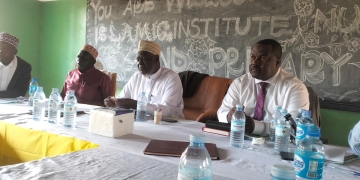
With effect from this academic year, 2020/2021, Makerere University will transform into a research-led university, in accordance with the new university strategic plan.
There will be a distinct shift to increase graduate enrolment, knowledge production and reduce undergraduate academic programmes and students.
The university plans to gradually cut the current 150 programmes to just 80.
Prof. Barnabas Nawangwe, the university’s vice-chancellor, confirmed the development.
He said there is a lot of duplication in programmes and that this called for the scrapping and merging of some.
Nawangwe said the scrapping programmes started about 10 years ago when the 400 courses were reduced to 250 and again to the current 150.
Affected courses
He declined to release the full list of programmes proposed for scrapping.
However, a source in the academic registrar’s department said most of the affected programmes will be under economics and the College of Humanities and Social Sciences such as development studies and business administration.
The source said these will become course units in other mainstream programmes.
For instance, it is proposed that Bachelor of Development Studies be phased out and its content becomes a crosscutting course unit in several humanities programmes.
Bachelor of Arts (economics) and Bachelor of Development Economics will be merged.
Other programmes to be merged are Bachelor of Statistics and Bachelor of Business Statistics as well as community psychology and industrial and organisational psychology.
In pursuit of innovation
The Makerere University Strategic Plan 2020-2030 was approved last week by the University Council, the institution’s supreme governing body.
Its aim is to provide the desired human capital for the country and region.
The University Council was to sit yesterday to determine the fate of programmes proposed for scrapping, but the meeting was postponed.
Dr Vincent Ssembatya, the director in charge of quality assurance at Makerere University, urged the rest of the universities to focus on areas where Makerere will pull out.
He said the move will allow Makerere University to focus on innovations and make other universities more competitive.
Makerere University presents Covid-19 intervention model
According to Nawangwe, the strategy also aims at reducing the student numbers from about 35,000 students to just 25,000.
“We currently have a large population of students and few lecturers. Many of our staff cannot carry out research because of the big student numbers. The quality of their staff at many universities is a challenge. The current strategic plan enables us to help out by training lecturers for such universities,” he said.
Of the targeted 25,000, Nawangwe said 10,000 (about 40%) will be graduate students and 15,000 undergraduate.
Currently, 70% of the total enrolment is undergraduate students.
The strategic plan indicates that there will be efforts to engage the Government to fund graduate programmes through the Student Loan Scheme and other direct funding mechanisms.
Nawangwe emphasised that the reducing of student numbers will be done gradually.
“This year, there will be a slight reduction in the admission of undergraduate numbers and a slight increment in the graduate numbers,” he said.
Why the changes
Changing Makerere to a research-led university was part of the recommendations by the visitation committee in 2016. The committee recommended that Makerere focuses on research and innovation, and transfer certain programmes to other academic institutions.
Story Courtesy of New Vision










